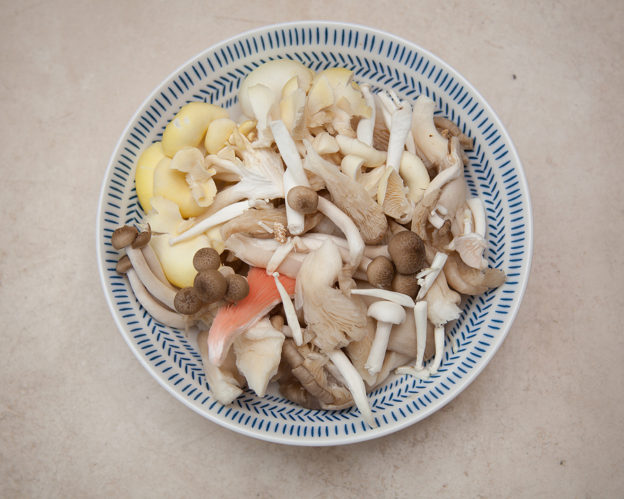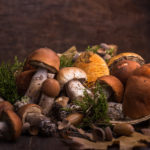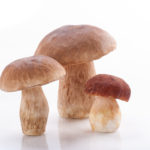By David Blyweiss, M.D., Advanced Natural Wellness
September 2, 2020
Let’s take a moment and talk about a staple ingredient in my kitchen… mushrooms!
Mushrooms are really great. I toss them into my omelets and frittatas and chop them up for my soups, stews and stir fries. They’re also a tasty addition to salads and veggie wraps or can be used as toppings for meats and fish.
In fact, I use them so often it shocks me when others don’t. Many of my own patients say they don’t eat mushrooms regularly.
Boy, are they missing out!
As it turns out, Americans only eat about four pounds of mushrooms – per person – in a given year. That’s a paltry amount when you compare it to the 22+ pounds eaten yearly by the Chinese.
MD Exposes the Hidden Danger to Your Eyes

When your eyesight starts to fail, it's a real problem. Suddenly you can't go to the grocery store... you can't get to the doctor if you have an emergency... you can't meet your friends for dinner…
Your "regular" doctor doesn't have time to keep up with the latest research. And the same goes for eye doctors. They go to school to learn how to fit you for glasses and contacts, but have no way of preventing the damage and loss of eyesight that threatens your freedom and independence.
Let me show you something that explains a LOT about how your eyes work.
In my FREE Special Report, I'll show you a HUGE, untapped resource for your eyes that safely and naturally restores clear, effortless eyesight.
Click here to get started...
Even world-wide, people are eating an average of 11 pounds of mushrooms per year.
Really, this is a shame. Because mushrooms are, by far, the most abundant source of ergothioneine (ergo) in our food supply.
What is ergo, you ask?
Well, it’s a powerhouse when it comes to protecting your DNA and powering up your mitochondria for life-long health and energy. Ergo is a powerful free radical scavenger, anti-inflammatory agent and protector against radiation. such as mercury and cadmium. Basically, it’s a “cytoprotectant.”
This means it’s a cell protector, concentrating itself in those tissues and organs that need antioxidant protection.
Ergo is one of the main reasons why mushrooms deliver so many wonderful health benefits.
Just a few ounces will do the trick…
Edible mushrooms have been used medicinally for thousands of years. And for good reason. Just take a look at some of the incredible benefits you can receive from a few ounces of mushrooms each week.
Are You Suffering From...
- Love handles and a pot belly
- Romance that isn't what it used to
- Forgetfulness and inattention
- Low (or no) strength and endurance
- A sex drive that's shifted into neutral...or worse
If so...you may have Mature Male Burnout. Click here to discover more about this unique condition and what you can do about it.
- Just two ¾ cup servings (about 5.2 ounces) of cooked mushrooms twice each week could potentially reduce your odds of mild cognitive impairment by 50%.
- Older individuals who enjoy three or more servings of mushrooms a week lower their chances of dementia by about 19%.
- Eating just one or more fresh button mushroom every day can decrease breast cancer risk in pre-and postmenopausal women as much as two thirds. (Note: One button mushroom weighs about 10 grams… or less than a third of an ounce.)
- In men, consumption of mushrooms three or more times per week is associated with a 17% lower risk of prostate cancer. LINK TO: https://advancednaturalwellness.net/2014/11/this-is-your-prostate-on-statin-drugs/
- Substituting eight ounces of meat with eight ounces of fresh mushrooms three times each week can result in weight loss, lower body mass index, smaller waist circumference and lower total body fat. It can also help improve blood pressure, lipid profile and inflammatory markers.
- White button mushrooms act as a prebiotic, which helps support a healthy gut microbe. This, in turn, could assist in better glucose control.
These are a lot of great reasons to add more mushrooms to your diet.
Eat them raw or cook them up. Stuff them, bake them or broil them. Put them in your salads, sauces, sandwiches… or anywhere else you can use them to enhance your meals.
For the highest ergo content go for the exotics. Shiitake, oyster, porcini and maitake are the most potent. They can contain up to 13 mg of ergo in a three ounce serving.
But that doesn’t mean you can’t get a decent dose of ergo in more commonly consumed mushrooms. Portabellas and criminis have a great ergo profile, followed closely by white buttons.
If you’re anti-fungi – as some people are – you can always look for an ergothioneine supplement.
And by the way… don’t forget to buy organic!
SOURCES:
Zhang Y, et al. Edible Mushroom Cultivation for Food Security and Rural Development in China: Bio-Innovation, Technological Dissemination and Marketing. Sustainability 2014, 6(5), 2961-2973.
Royse DJ, et al. Current overview of mushroom production in the world. In: Zied DC, Pardo-Giménez A, editors. Edible and medicinal mushrooms: technology and applications. Hoboken: John Wiley & Sons Ltd; 2017.
Feng L, et al. The Association between Mushroom Consumption and Mild Cognitive Impairment: A Community-Based Cross-Sectional Study in Singapore. J Alzheimers Dis. 2019;68(1):197-203.
Zhang S, et al. Mushroom Consumption and Incident Dementia in Elderly Japanese: The Ohsaki Cohort 2006 Study. J Am Geriatr Soc. 2017 Jul;65(7):1462-1469.
Zhang M, et al. Dietary intakes of mushrooms and green tea combine to reduce the risk of breast cancer in Chinese women. Int J Cancer. 2009 Mar 15;124(6):1404-8.
Zhang S, et al. Mushroom consumption and incident risk of prostate cancer in Japan: A pooled analysis of the Miyagi Cohort Study and the Ohsaki Cohort Study. Int J Cancer. 2019 Sep 4.
Poddar KH, et al. Positive effect of mushrooms substituted for meat on body weight, body composition, and health parameters. A 1-year randomized clinical trial. Appetite. 2013 Dec;71:379-87.
Feeney MJ, et al. Mushrooms and Health Summit proceedings. J Nutr. 2014 Jul;144(7):1128S-36S.
Tian Y, et al. Prebiotic effects of white button mushroom ( Agaricus bisporus ) feeding on succinate and intestinal gluconeogenesis in C57BL/6 mice. Journal of Functional Foods, 2018; 45: 223







